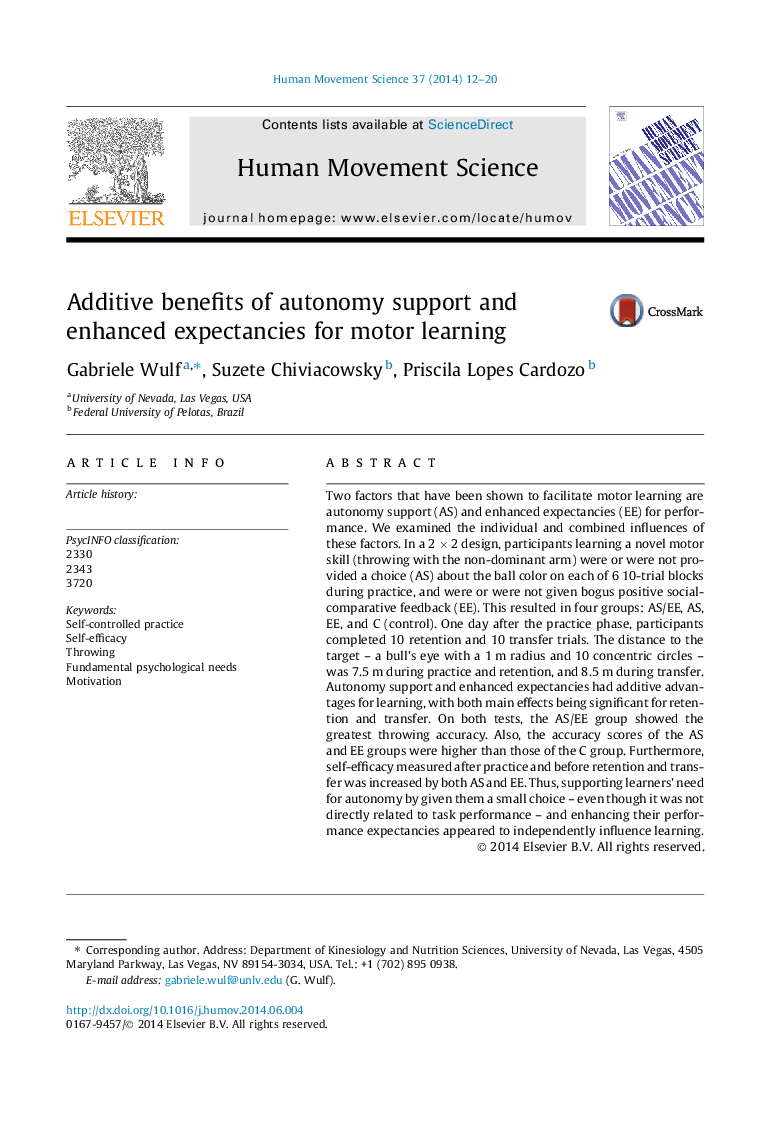| Article ID | Journal | Published Year | Pages | File Type |
|---|---|---|---|---|
| 7292354 | Human Movement Science | 2014 | 9 Pages |
Abstract
Two factors that have been shown to facilitate motor learning are autonomy support (AS) and enhanced expectancies (EE) for performance. We examined the individual and combined influences of these factors. In a 2Â ÃÂ 2 design, participants learning a novel motor skill (throwing with the non-dominant arm) were or were not provided a choice (AS) about the ball color on each of 6 10-trial blocks during practice, and were or were not given bogus positive social-comparative feedback (EE). This resulted in four groups: AS/EE, AS, EE, and C (control). One day after the practice phase, participants completed 10 retention and 10 transfer trials. The distance to the target - a bull's eye with a 1Â m radius and 10 concentric circles - was 7.5Â m during practice and retention, and 8.5Â m during transfer. Autonomy support and enhanced expectancies had additive advantages for learning, with both main effects being significant for retention and transfer. On both tests, the AS/EE group showed the greatest throwing accuracy. Also, the accuracy scores of the AS and EE groups were higher than those of the C group. Furthermore, self-efficacy measured after practice and before retention and transfer was increased by both AS and EE. Thus, supporting learners' need for autonomy by given them a small choice - even though it was not directly related to task performance - and enhancing their performance expectancies appeared to independently influence learning.
Related Topics
Life Sciences
Neuroscience
Cognitive Neuroscience
Authors
Gabriele Wulf, Suzete Chiviacowsky, Priscila Lopes Cardozo,
